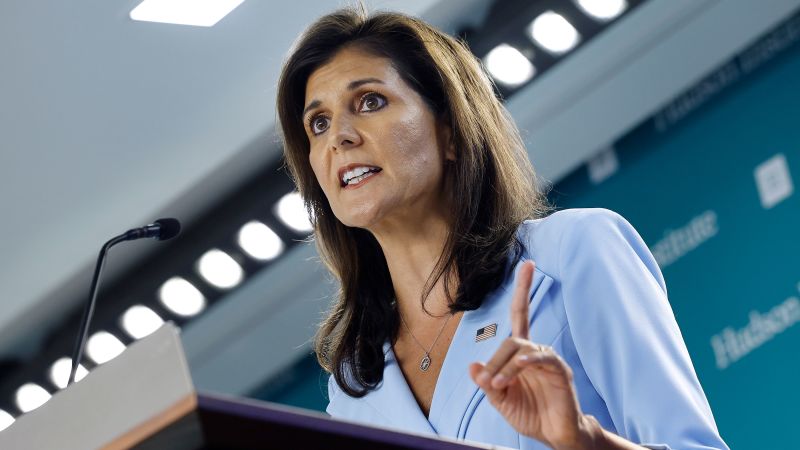Nikki Haley’s political calculations have shifted as she went from criticizing Donald Trump to endorsing him in the upcoming election. Haley had previously expressed concerns about Trump’s temperament and inability to beat Joe Biden, but now she has stated that Biden has been a “catastrophe” and that she will be voting for Trump. Despite her prior reservations about Trump’s behavior and policies, Haley’s decision to support him is seen as a necessary move if she wants to maintain a future in a Republican Party that is dominated by Trump’s influence.
Haley’s decision to endorse Trump may have been driven by her desire to run for president again once Trump leaves the stage. Her move is viewed as a strategic political calculation to align herself with the party’s presumptive nominee, even at the expense of her previous criticisms of Trump. While this decision may reinforce perceptions of Haley as someone who prioritizes her personal ambitions, it also positions her to potentially lead the GOP back to pre-Trump positions on foreign policy and the economy in the future.
Other GOP presidential candidates with White House aspirations, like Ron DeSantis, have also shifted their stance on Trump as a result of political expediency. Haley’s choice to support Trump, despite her previous criticisms of him and of Biden’s age and cognitive abilities, raises questions about whether her supporters will follow her lead. This decision may also create potential conflicts for Haley as she balances her personal political ambitions with her prior criticisms of Trump and Biden.
Haley’s tepid support for Trump has left some questions about whether she will actively campaign for him and urge her voters to back him. While stating that she will vote for Trump, Haley also emphasized the importance of him reaching out to her supporters. The lack of enthusiastic endorsement for Trump from Haley raises doubts about the depth of her commitment to his candidacy and the extent of her influence over her base of supporters.
Haley’s endorsement of Trump, despite her earlier criticism of him, underscores the complexities of presidential primary campaigns and the challenges of balancing personal ambition with political calculations. Her shifting positions in the lead-up to the election reflect the broader dilemma facing Republican candidates in dealing with Trump’s enduring popularity among base voters. Despite her previous criticisms of Trump’s behavior and policies, Haley’s decision to support him in the 2024 election highlights the pragmatism and strategic considerations that often guide political decisions.
In the end, Haley’s choice to vote for Trump in the upcoming election signifies a shift in her political stance and highlights the complex dynamics within the Republican Party. As she navigates the changing political landscape and looks towards her own future political aspirations, Haley’s endorsement of Trump reflects the delicate balance between personal ambition, party loyalty, and strategic calculations in the realm of presidential politics.















